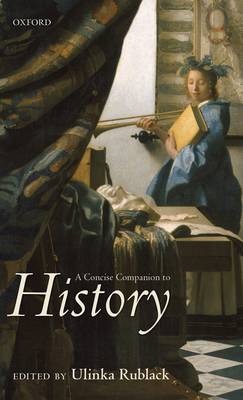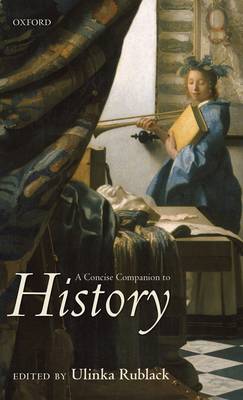
Bedankt voor het vertrouwen het afgelopen jaar! Om jou te bedanken bieden we GRATIS verzending aan op alles gedurende de hele maand januari.
- Afhalen na 1 uur in een winkel met voorraad
- Gratis thuislevering in België
- Ruim aanbod met 7 miljoen producten
Bedankt voor het vertrouwen het afgelopen jaar! Om jou te bedanken bieden we GRATIS verzending aan op alles gedurende de hele maand januari.
- Afhalen na 1 uur in een winkel met voorraad
- Gratis thuislevering in België
- Ruim aanbod met 7 miljoen producten
Zoeken
Omschrijving
What is our relationship with the past? A quiet revolution has transformed the ways in which History provides us with answers. Indeed, not so long ago the very question might have seemed odd. But in recent decades the solid moorings to which History was seemingly tethered have proved less secure than earlier supposed. That realization has produced some discomfiture, but also many more opportunities for understanding worlds with which we have lost connection. No single book can hope to reflect all the ways in which History has 'changed with the times' nor can, or should, a volume with numerous contributors speak with one voice. Yet the Companion does range widely, addressing key themes and structures from new areas of enquiry as well as providing fresh treatment of established fields; and it does mark a significant departure in a genre still shaped by stories that are predominantly Western. It reflects a practice of history that seeks global connections and pioneers a sustained dialogue between historians specializing in the history of particular continents. It does not, in the sharply ridiculing phrase of one historian, compare the Ashanti empire to the British empire. But the scholars writing in this book build on the much greater awareness that 'Western' achievements and claims to modernity were often not as unique as once portrayed, and that the history of interconnections and multi-centric developments of different civilisations is crucial for a proper critical understanding of the past. Escorted by some of the world's leading historians, readers of the Companion will find in these pages an indispensable guide to what history is today.
Specificaties
Betrokkenen
- Auteur(s):
- Uitgeverij:
Inhoud
- Aantal bladzijden:
- 480
- Taal:
- Engels
Eigenschappen
- Productcode (EAN):
- 9780199291212
- Verschijningsdatum:
- 8/04/2011
- Uitvoering:
- Hardcover
- Formaat:
- Genaaid
- Afmetingen:
- 140 mm x 216 mm
- Gewicht:
- 680 g

Alleen bij Standaard Boekhandel
+ 132 punten op je klantenkaart van Standaard Boekhandel
Beoordelingen
We publiceren alleen reviews die voldoen aan de voorwaarden voor reviews. Bekijk onze voorwaarden voor reviews.












